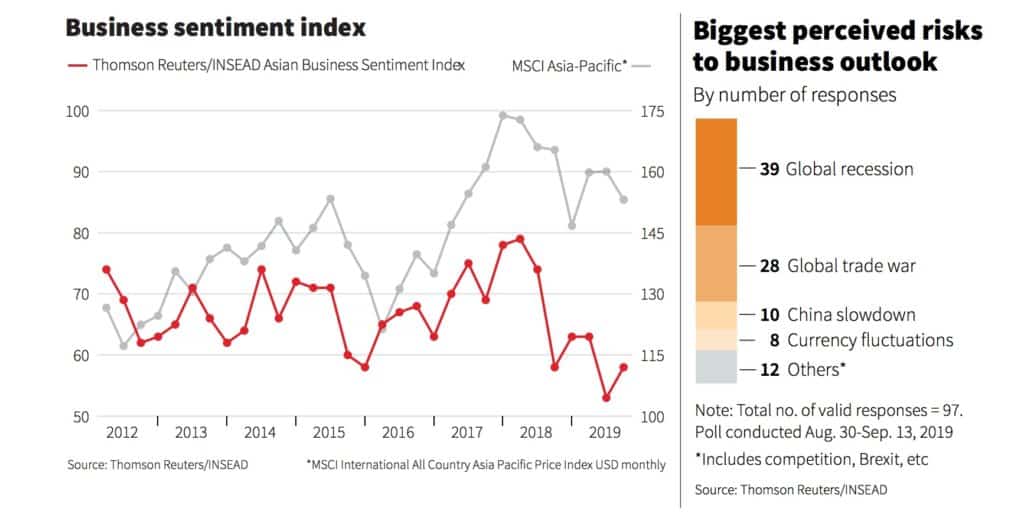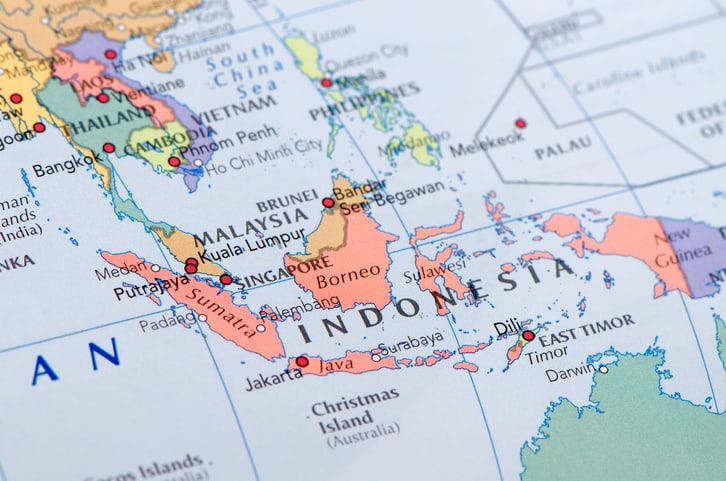More than two-third of Asian firms surveyed by INSEAD recently plan to cut jobs out of recession fear though their confidence lifted slightly in the September quarter from 10-year lows, said INSEAD recently.
The business school and Thomson Reuters surveyed 102 companies during Aug 30 - Sep13 from a range of sectors in 11 Asia Pacific countries where 45% of the world's population live and almost a third of global gross domestic product is generated.
Participants included firms from auto-making to technology such as Canon, SoftBank Group and Hero MotoCorp, INSEAD said.
The Thomson Reuters/INSEAD Asian Business Sentiment Index tracking firms' six-month outlook rose five points to 58 in the survey, according to INSEAD.
A reading above 50 means optimistic respondents outnumbered pessimists, the business school added.
The latest showing means the index hasn’t risen above the mid-60s for a year and is one of the seven weakest readings since the 2008-2009 global financial crisis, INSEAD pointed out.
Respondents rated a global recession as the top risk, overhauling trade-war fears which had topped the table for the previous six quarters, the organization observed.
"We are in a state of almost permanent uncertainty, which is not leading yet to a crisis but I think at some point we are going to see the cost of it," said Antonio Fatas, a Singapore-based economics professor at global business school INSEAD.
Fatas said while investments are going to be postponed, others are going to be stopped and little by little the engine of growth is going to slow down.

Headcount reduction planned by more than two-thirds of respondents
In addition, more than two-thirds of respondents plan on cutting staff or at best holding numbers steady in the next six months, survey results indicate.
Only 39% expect their sales volumes to rise, according to INSEAD.
"It's about not over-committing on expansion plans...it's about being prudent," said Suresh Sidhu, chief executive officer of Kuala Lumpur-headquarted telecom infrastructure firm edotco Group, a survey participant.
"I don't see people stopping, I just see people thinking about stopping. We definitely have not scaled up very aggressive plans...in times of great complexity and unpredictability, people generally don't spend,” the CEO added.




